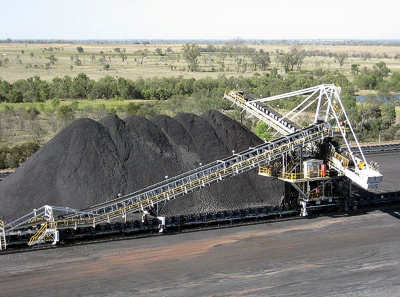 Editor’s note: We are very pleased to welcome author Jeff Goodell, who will be blogging for Grist while on tour with his new book, How to Cool the Planet: Geoengineering and the Audacious Quest to Fix Earth’s Climate.
Editor’s note: We are very pleased to welcome author Jeff Goodell, who will be blogging for Grist while on tour with his new book, How to Cool the Planet: Geoengineering and the Audacious Quest to Fix Earth’s Climate.
For a writer, publishing a book is like letting an animal out of a cage — you never know how it will behave in public, whether people will be charmed by it, or scared by it. Or bored.
This is doubly true with book about geoengineering — an issue that is volatile, profound, and morally fraught. Is it a sci-fi nightmare writ large, or a sensible back-up plan in case our climate spins out of control?
I have my own ideas about all this — and wrote about them in my new book, How to Cool the Planet. But now, as I travel around the country for the next month, I get to hear your ideas. Are you scared by geoengineering? Worried about rogue nations — or rogue billionaires — taking the fate of the planet into their own hands by launching a geoengineering project? Is geoengineering another way for rich, technologically-advanced nations to exert their will over the rest of the world? Does geoengineering the planet necessarily mean the end of nature as we know it?
I’d like to talk about all this — both on the road, and here in this blog.
I’d also like to test a whole bunch of assumptions that scientists and academics who have been thinking about geoengineering tend to make, but that might not in fact be true.
But before we get to the assumptions, here’s a quick backgrounder on geoengineering: The British Royal Society defined geoengineering as “the deliberate, large-scale intervention in the Earth’s climate system in order to moderate global warming.” We could intervene with technologies that reflect sunlight away from the earth, or with technologies that pull CO2 right out of the air. Sucking out CO2 tends to be slow, expensive, and uncontroversial; reflecting sunlight is fast, cheap, and dangerous.
Here’s one assumption I’ll explore in upcoming posts: does taking geoengineering seriously — investing in research, setting up possible governance structures — undercut our collective will to cut greenhouse gas pollution?
One of the most commonly expressed fears about geoengineering is that it’s likely to be promoted by Big Coal and Big Oil as a “quick fix” — in other words, we don’t have to change our lives or rebuild our energy infrastructure, we can just spray some sulfur particles in the air and be done with it.
First, let me be blunt and say unequivocally that geoengineering is not a quick fix for global warming. It could very well cause many more problems than it solves. (Of course, that may not matter. Diet pills often cause more problems than they solve, but that has not stopped the pharmaceutical industry from turning them into a multi-billion dollar business.)
That’s why you could just as easily make the case that taking geoengineering seriously might in fact be a really good idea. It might turn out to be the climate equivalent of those crack-up movies they show in driver’s ed classes — the theory being that if you see enough blood splattered on the dashboard, you’ll think harder about drinking a case of tall boys before climbing behind the wheel.
Maybe if you knew that reckless geoengineering could shift the Asian monsoons, which hundreds of millions of people depend on to grow their crops, you’d be more likely to buy a Nissan Leaf, give up beef, and march on Washington to demand tough climate legislation.
What do you think?




